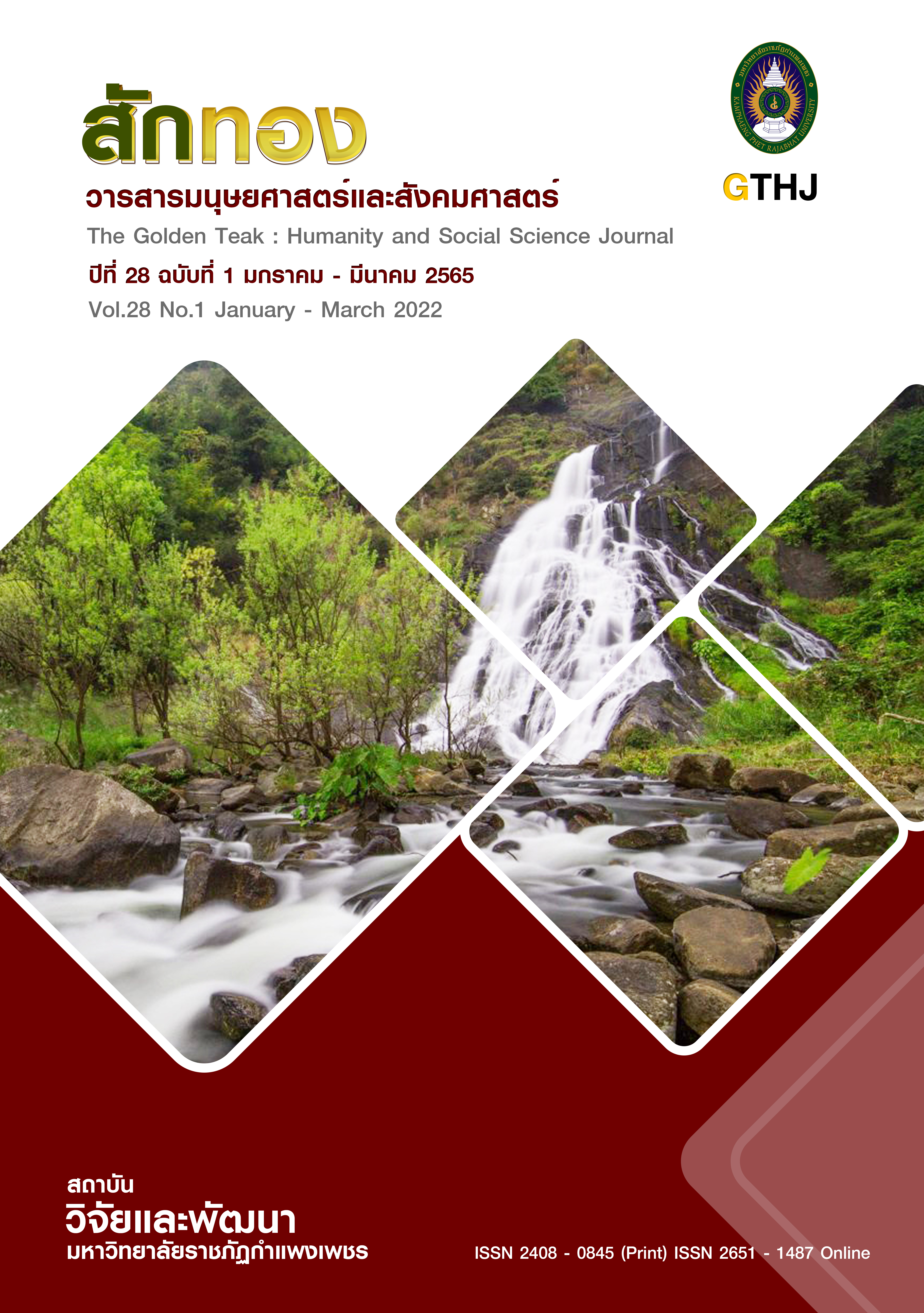The Learning Activities Based on fem Approach to Enhance Mathematical Connection Ability in Ratio of Grade 7 Students
Main Article Content
Abstract
This research aimed to study the effects of learning activities based on FEM approach to mathematical connection ability in ratio of grade 7 students. The research methodology was the classroom action research. The instruments used in the research were three lesson plans, learning activities sheets and mathematical connection ability test. Data were analyzed by content analysis and checking for data creditability by methodological triangulation method. The results revealed that most students who learned through context-based learning have mathematical connection ability in good level. Students can identify concepts related to the problem solving process, do the correct mathematical processes for solving real-life situations that require understanding in ratios, proportion and percentages, and can give examples of real-life situations related to ratios, proportion and percentages concepts.
Article Details

This work is licensed under a Creative Commons Attribution-NonCommercial-NoDerivatives 4.0 International License.
บทความที่ได้รับการตีพิมพ์เป็นลิขสิทธิ์ของวารสาร สักทอง : วารสารมนุษยศาสตร์และสังคมศาสตร์ สถาบันวิจัยและพัฒนา มหาวิทยาลับราชภัฏกำแพงเพชร
ข้อคิดเห็นใดๆ ที่ปรากฎในวารสารเป็นวรรณกรรมของผู้เขียนโดยเฉพาะ ซึ่งมหาวิทยาลัยราชภัฏกำแพงเพชรและบรรณาธิการไม่จำเป็นต้องเห็นด้วย
References
Fouryza, D. (2019). Designing lesson plan of integer number operation based on fun and easy math (FEM) approach. International Journal of Evaluation and, Research in Education (IJERE), 8(1), 103-109.
Jampaon. C. (2019). The learning management outcome of Realistic Mathematics Education (RME) for promoting mathematical problem Solving ability for Mathayomsuksa 6 students. Bangkok : Silpakorn University.
Kennedy, L.M. & Tipp, S. (1994). Guiding Children’s Learning of Mathematics International. Thomson Publishing.
Lu Pien Cheng. (2013). The design of a mathematics problem using real–life contexts :An example of effective practice in secondary school mathematics. Master’ thesis National Institute of Education.
Ministry of Education. (2016). The Report for Monitoring and Evaluating Education based on the Revised National Education Plan (2552 - 2559 B.E.). Bangkok : Office of the Education Council : ONEC.
National Council of Teachers of Mathematics (NCTM). (2000). Principles and standards for school mathematics. N.P. : National Council of Teacher of Mathematics.
OBCD. (2019c). PISA 2018 Results (Volume I) : What Students Know and Can Do. Paris : PISA. OECD Publishing.
PISA Thailand. (2014). Examples of Mathematic Test in PISA 2012. The Institute for the Promotion of Teaching Science and Technology (IPST) Government Building.
Subsaman, P. (2006). Learning management by acquiring knowledge and self–directed learning Methods. Bangkok : Chulalongkorn University.
Tangkawsakul. S. (2017). Development of Mathematical activity package by Using context-based approach and mathematical modelling to enhance mathematical connection albites and attitude towards mathematic of ninth grade students. Bangkok : Chulalongkorn University.
Tholaeng, S. (2016). Comparisons of Leaning Achievement Problems Solving Skills and Mathematics Connection Ability Entitled Content Application of Prathomsuksa 6 Students Between Using Problem–Based Learning Approach and 4MAT Learning Model. Journal of Education Mahasarakham University, 10(Special), 1148-1163.
The Institute for the Promotion of Teaching Science and Technology (IPST) Government Building. (2012). Math assessment. Bangkok : The Institute for the Promotion of Teaching Science and Technology (IPST).
The Institute for the Promotion of Teaching Science and Technology (IPST) Government Building. (2013). PISA 2012 Results : Mathematics, Reading and Science. N.p. : The Institute for the Promotion of Teaching Science and Technology (IPST).


